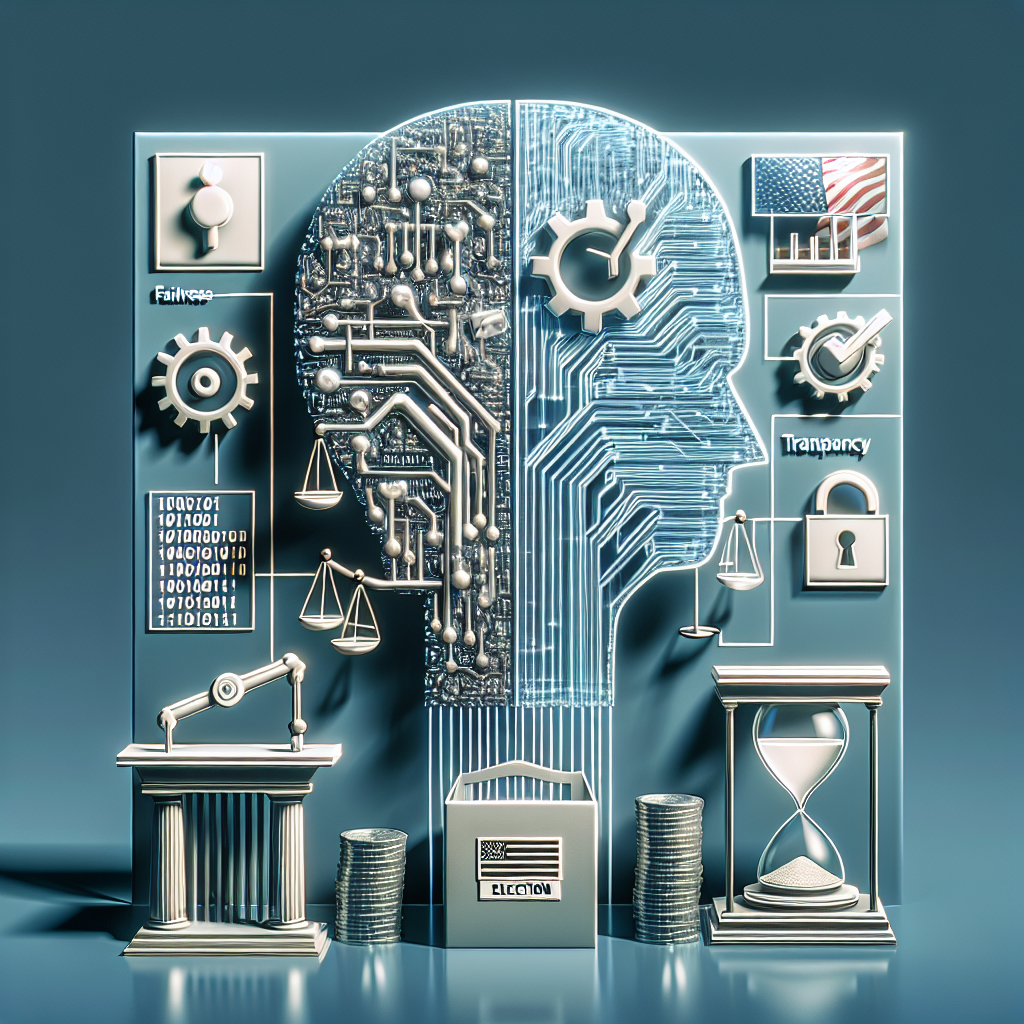In recent years, there has been growing concern about the security and integrity of elections around the world. With the rise of digital technology and the increasing use of online platforms for voting and campaigning, there are new challenges and threats to the fairness and transparency of elections. Artificial Intelligence (AI) has emerged as a powerful tool in the fight against election fraud and manipulation, helping to ensure that elections are conducted in a secure and transparent manner.
AI technology can be used in various ways to enhance election security. One of the key applications of AI in election security is in the detection of fraudulent activities such as voter fraud, tampering with electronic voting machines, and manipulation of election results. AI algorithms can analyze large volumes of data to identify patterns and anomalies that may indicate potential fraud or manipulation. By monitoring social media, online forums, and other digital platforms, AI can help detect and prevent misinformation campaigns and other forms of interference in the electoral process.
Another important use of AI in election security is in the verification of voter identity. Biometric technologies such as facial recognition and fingerprint scanning can be used to ensure that only eligible voters are able to cast their ballots. AI algorithms can also help to detect duplicate voter registrations and other forms of voter fraud. By incorporating AI-powered identity verification systems into the voting process, election officials can help to prevent unauthorized access to voting systems and ensure that each vote is cast by a legitimate voter.
AI can also be used to enhance the security of electronic voting machines. By using AI algorithms to monitor the integrity of voting machines and detect any attempts to tamper with or manipulate the machines, election officials can help to ensure that the voting process is secure and free from interference. AI can also be used to detect and prevent cyber attacks on voting systems, helping to safeguard the integrity of election results.
In addition to enhancing election security, AI can also help to improve the transparency of the electoral process. By using AI algorithms to analyze and visualize election data, election officials can provide real-time updates on voter turnout, election results, and other key metrics. This can help to increase public trust in the electoral process and ensure that elections are conducted in a fair and transparent manner.
Despite the potential benefits of AI in election security, there are also concerns about the use of AI in the electoral process. Critics argue that AI algorithms may be biased or discriminatory, leading to unfair outcomes in elections. There are also concerns about the potential for AI to be hacked or manipulated, compromising the integrity of election results. To address these concerns, it is important for election officials to implement robust security measures and safeguards when using AI in election security.
FAQs:
Q: How can AI help to detect and prevent voter fraud?
A: AI algorithms can analyze large volumes of data to identify patterns and anomalies that may indicate potential voter fraud. By monitoring social media, online forums, and other digital platforms, AI can help detect and prevent misinformation campaigns and other forms of interference in the electoral process.
Q: What are the potential benefits of using AI in election security?
A: AI can help to enhance the security and transparency of elections by detecting and preventing fraudulent activities, verifying voter identity, and safeguarding electronic voting machines. AI can also help to improve the efficiency and accuracy of the electoral process, providing real-time updates on voter turnout and election results.
Q: Are there any concerns about the use of AI in election security?
A: Critics have raised concerns about the potential for AI algorithms to be biased or discriminatory, leading to unfair outcomes in elections. There are also concerns about the security and integrity of AI systems, with the potential for hacking or manipulation compromising the integrity of election results. It is important for election officials to implement robust security measures and safeguards when using AI in election security.
In conclusion, AI has the potential to revolutionize election security by enhancing the detection and prevention of fraud, verifying voter identity, and improving the transparency of the electoral process. By implementing robust security measures and safeguards, election officials can harness the power of AI to ensure that elections are conducted in a fair and transparent manner. As technology continues to evolve, it is important for election officials to stay ahead of the curve and leverage AI to safeguard the integrity of democratic processes around the world.

